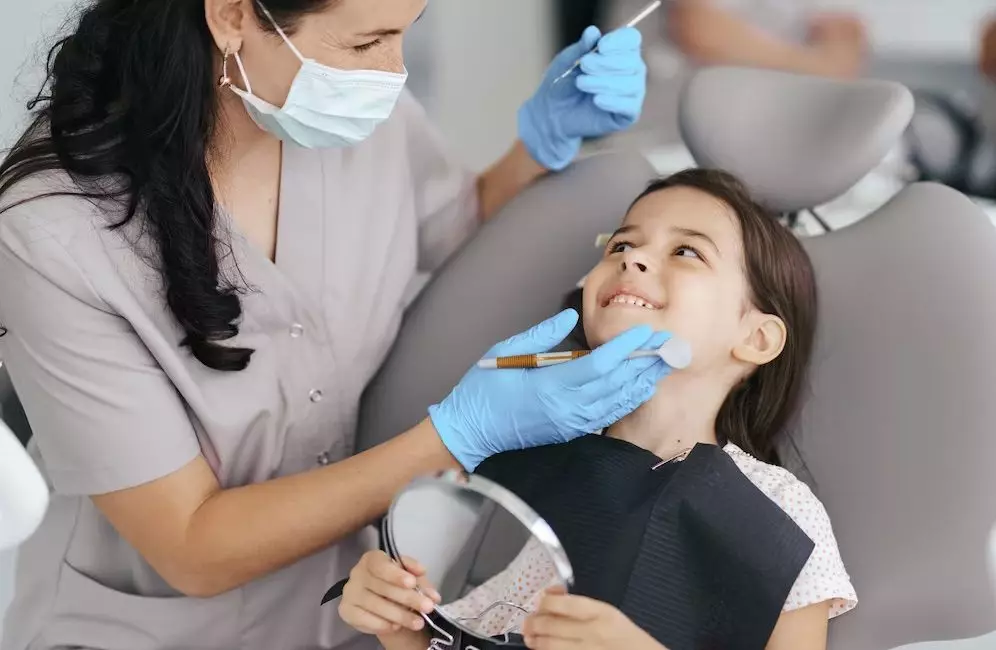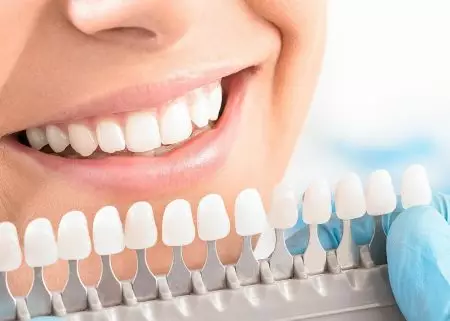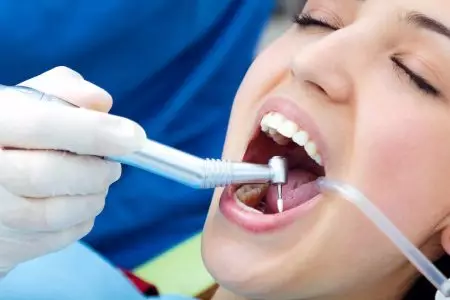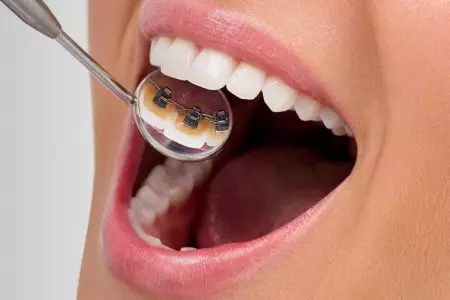The first visit to the paediatric dentist is an important and responsible event for a child. The main thing for parents is to provide the most comfortable environment and to help the little one withstand the ordeal with honour. If the doctor and parents manage to create a comfortable atmosphere, subsequent visits will go smoothly. The success of the first visit to the doctor largely determines the child’s attitude towards dental treatment. Unfortunately, in some cases, the child may develop phobias as a result of stress. However, by following certain rules, you can avoid negative developments. The first visit to the dentistry can be made less frightening for your baby by making an appointment for a consultation. In such cases, unpleasant medical manipulations are not required. Even if the doctor has discovered a problem, its elimination is better postponed to the next visit.

During the consultation, the child will get acquainted with the attending doctor and the clinic. Today, various methods are used to make the child’s stay in the clinic as interesting and comfortable as possible. Some of them have playrooms, and sometimes elements of play are introduced into the treatment process itself. For example, the opportunity to choose the colour of the filling. But what should you do if your child has already had a negative experience of treatment? Be sure to tell your doctor about it. Paediatric dentists are focused on working with young patients, and many of them take specialised courses. Thanks to this, specialists can find an approach to the child.
How to prepare your baby for the first visit
If the child is clearly not in the right frame of mind, the dental visit should be postponed to another day. For the first visit, it is better to choose the morning. At the same time, you should not come significantly earlier than the scheduled appointment time. Optimally – 10 minutes before the set time. You should not go to the paediatric dentistry also in the part of the day when the child is usually asleep. Visits too early in the morning and late in the evening also stress the child. The baby should not experience physical discomfort, including hunger or thirst. It is better if you feed him 2 hours before the doctor’s appointment.

Don’t forget to brush your teeth after eating.You should not hide the planned visit from your child. But don’t make it the highlight of the day. Let it be better to go to amusement rides, the cinema, the zoo, and a visit to the doctor will be just part of the overall programme. Always answer the child’s questions directly and frankly.
- Gently explain to him that it is better to solve the problem now than to put it off until later, when treatment can become really long and debilitating.
- Remind him of successful examples from his life when he was able to cope with a situation by overcoming fear.
- Think back to when you were his age. You can tell a real, non-fictitious story from your life.
In addition, you should not use phrases like «don’t be afraid», «it won’t hurt», «you need to be a little patient» and similar phrases.
How to behave as a parent at a dental appointment
It is always better to discuss treatment issues that are unclear to you without the child, face to face with the specialist. It is also better not to distract the doctor with questions during treatment. The fact is that young patients are not able to endure long procedures. As a rule, 15-20 minutes – this is the maximum that the doctor should meet. This means that the dentist should be focused on the work, maintaining contact with the patient.
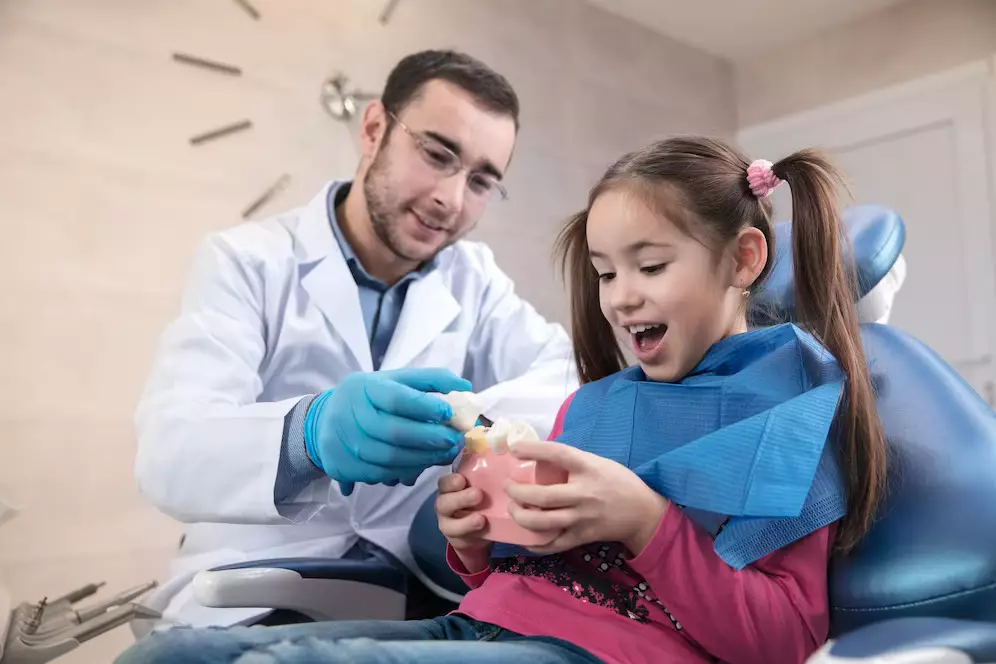
One of the parents can be in the dentist’s office. Take advantage of this opportunity and support the child with your presence. If the baby is very young, it is acceptable to hold him or her in your arms during the procedures. In this case, you can also take one of your favourite toys with you. By following certain rules, you will help to create the most comfortable environment for your child and an atmosphere of mutual understanding during the treatment. Control yourself and the tone of your voice. There should be no excessive categoricism or so-called pussyfooting. Be honest. Do not criticise the child – he is already in a stressful situation. At this moment he should feel only unambiguous support from the closest people. Do not enter into a dialogue between the doctor and the young patient. Do not tell him what and how to do and how to behave when he is sitting in the chair. It is necessary to react calmly to tears and not to reproach the baby. After the procedures are completed, be sure to praise the child for his endurance. You should also encourage your child with a new toy or some kind of entertainment that pleases him. Remember that the best way to teach children to take care of their teeth is to set an example. Prevention is a great way to save teeth and avoid all the worry of treatment, especially for advanced cases of tooth decay. Keep an eye on your child’s oral health and make dental care a part of their daily activities.
 During the consultation, the child will get acquainted with the attending doctor and the clinic. Today, various methods are used to make the child’s stay in the clinic as interesting and comfortable as possible. Some of them have playrooms, and sometimes elements of play are introduced into the treatment process itself. For example, the opportunity to choose the colour of the filling. But what should you do if your child has already had a negative experience of treatment? Be sure to tell your doctor about it. Paediatric dentists are focused on working with young patients, and many of them take specialised courses. Thanks to this, specialists can find an approach to the child.
During the consultation, the child will get acquainted with the attending doctor and the clinic. Today, various methods are used to make the child’s stay in the clinic as interesting and comfortable as possible. Some of them have playrooms, and sometimes elements of play are introduced into the treatment process itself. For example, the opportunity to choose the colour of the filling. But what should you do if your child has already had a negative experience of treatment? Be sure to tell your doctor about it. Paediatric dentists are focused on working with young patients, and many of them take specialised courses. Thanks to this, specialists can find an approach to the child.
 Don’t forget to brush your teeth after eating.You should not hide the planned visit from your child. But don’t make it the highlight of the day. Let it be better to go to amusement rides, the cinema, the zoo, and a visit to the doctor will be just part of the overall programme. Always answer the child’s questions directly and frankly.
Don’t forget to brush your teeth after eating.You should not hide the planned visit from your child. But don’t make it the highlight of the day. Let it be better to go to amusement rides, the cinema, the zoo, and a visit to the doctor will be just part of the overall programme. Always answer the child’s questions directly and frankly.
 One of the parents can be in the dentist’s office. Take advantage of this opportunity and support the child with your presence. If the baby is very young, it is acceptable to hold him or her in your arms during the procedures. In this case, you can also take one of your favourite toys with you. By following certain rules, you will help to create the most comfortable environment for your child and an atmosphere of mutual understanding during the treatment. Control yourself and the tone of your voice. There should be no excessive categoricism or so-called pussyfooting. Be honest. Do not criticise the child – he is already in a stressful situation. At this moment he should feel only unambiguous support from the closest people. Do not enter into a dialogue between the doctor and the young patient. Do not tell him what and how to do and how to behave when he is sitting in the chair. It is necessary to react calmly to tears and not to reproach the baby. After the procedures are completed, be sure to praise the child for his endurance. You should also encourage your child with a new toy or some kind of entertainment that pleases him. Remember that the best way to teach children to take care of their teeth is to set an example. Prevention is a great way to save teeth and avoid all the worry of treatment, especially for advanced cases of tooth decay. Keep an eye on your child’s oral health and make dental care a part of their daily activities.
One of the parents can be in the dentist’s office. Take advantage of this opportunity and support the child with your presence. If the baby is very young, it is acceptable to hold him or her in your arms during the procedures. In this case, you can also take one of your favourite toys with you. By following certain rules, you will help to create the most comfortable environment for your child and an atmosphere of mutual understanding during the treatment. Control yourself and the tone of your voice. There should be no excessive categoricism or so-called pussyfooting. Be honest. Do not criticise the child – he is already in a stressful situation. At this moment he should feel only unambiguous support from the closest people. Do not enter into a dialogue between the doctor and the young patient. Do not tell him what and how to do and how to behave when he is sitting in the chair. It is necessary to react calmly to tears and not to reproach the baby. After the procedures are completed, be sure to praise the child for his endurance. You should also encourage your child with a new toy or some kind of entertainment that pleases him. Remember that the best way to teach children to take care of their teeth is to set an example. Prevention is a great way to save teeth and avoid all the worry of treatment, especially for advanced cases of tooth decay. Keep an eye on your child’s oral health and make dental care a part of their daily activities.


